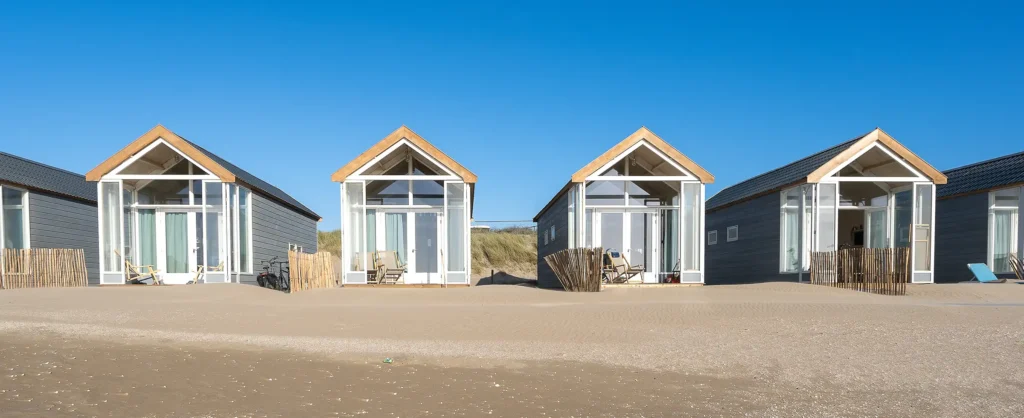Housing affordability has been an issue at the core of the UK’s housing crisis for decades. Yet, despite ongoing efforts from our government, we have consistently fallen short of demand when it comes to delivering both social and affordable housing. With the number of people living in temporary accommodation at an all-time high and rough sleeping recently rising by 27% in 2023, the question of how and how soon the UK government can ramp up its housebuilding is more pressing than ever.
Now, as we near the second quarter of 2024, there exists a golden opportunity for the housing market stakeholders to create superior affordable housing opportunities for renters and homeowners. But with that opportunity comes a range of risk factors that could lead to another year of shortfalls and continued housing affordability issues.
Will 2024 mark a decisive step towards delivering on the national housebuilding target of 300,000 affordable homes a year? The experts at Concept Capital Group are here to help make the path to housing affordability clearer.
A Hopeless History of Affordable Housing
The state of affordable housing has been dire in recent years.
Despite the Conservative government committing to an annual target of “300,000 homes a year by the mid-2020s” in its 2019 manifesto, the latest figures show that they fell short on housebuilding by a significant margin in 2022/23 with little improvement on the figures from 2021/22. Housing supply data from the Department of Levelling Up, Housing and Committees (DLUHC) reveals that, in the 30 years since the department started publicising official statistics on housebuilding, the number of new homes added to England’s housing supply has never exceeded 250,000, let alone 300,000. In its forecast for construction and housebuilding in the UK for 2024, professional services firm PwC noted that the government has only used £1.3 billion of its £4.2 billion public housebuilding fund, with work only having commenced on one in ten of the homes promised when the fund was established in 2017. This further suggests a lengthy pattern of underdelivering on the UK’s housebuilding targets.
This poor affordable housing delivery has also intensified in recent years. According to the National House Building Council (NHBC), housebuilding in the UK fell to its lowest levels since the COVID-19 pandemic in Q3 2023, with the number of registered new homes plummeting by 53% and the number of completed new homes also experiencing a 15% fall. More specifically, new home registrations in the rental and affordable housing sector fell by 43% compared to the same period in 2022, with the lower numbers of housebuilding attributed to the rising mortgage rates and other financial stressors.
To further complicate the issue of affordable housing supply, the Conservative government rounded out 2023 by relaxing the once-mandatory housebuilding target altogether, leaving room for the already flagging number of homes being built to dip further still as local authorities opt out of the costly commitment. A University College London (UCL) study on the challenges faced in delivering affordable housing by local authorities found that, despite the vast majority of local councils across England being directly involved in housing delivery, 50% were pessimistic about the possibility of increasing the supply of affordable housing in their area. This was a marked increase from the 23% that gave this response in 2021 and may well represent the lack of funding, land and expertise being afforded to local councils as they tackle housing affordability on a regional level.
There’s Still Hope for Housebuilding
Whether the upcoming General Election is to blame or whether key decision makers have been subject to more scrutiny following rising levels of homelessness and the highly publicised burden of affordable housing undersupply on temporary accommodation, the UK government seems ready and willing to turn housing affordability around in 2024.
Although affordable housing delivery has yet to fully meet its targets, the year from 2022 to 2023 saw a 7% increase in the number of affordable housing completions In England, the highest delivery on affordable housebuilding targets since 2014-15. Of that number, 94% of home completions were for new build homes, also the highest proportion since 2014-15.
Besides current output, the UK government has also recently developed a keener strategic and policy focus towards making a dent in affordable housing numbers. For instance, industry experts anticipate that DLUHC Secretary Michael Gove could soon announce a new law allowing commercial buildings to be turned into homes without the need for planning permission.
On the other side of the political spectrum, the Labour Party announced plans to build on low-grade greenbelt land, which it refers to as “grey belt” land. This strategy would see a focus on building on broader, neglected greenbelt land or land which has already been built on, such as car parks or scrubland.
In addition to brownfield building, February saw the DLUHC announce that 20,000 new affordable homes will be built across the country thanks to a £3 billion increase in the government-backed Affordable Homes Guarantee Scheme. This new funding will help incentivise private industry housing providers partnered with the UK government to carry out vital building safety work, giving them the scope to expand their business, upgrade existing housing stock and build more affordable housing overall.
Investing in Affordable Housing with Concept Capital Group
While there is still a long way to go to successfully meet the ever-escalating demand for affordable housing in the UK, the renewed focus on accomplishing housebuilding targets through a range of new and established methods suggests that we may see a rapid acceleration in the number of affordable homes being constructed across the country.
For investors interested in supporting the country’s affordable housebuilding efforts, Concept Capital Group offers a uniquely accessible alternative to traditional property investment. Designed to quickly provide permanent, high-quality rental housing to low-income and vulnerable tenants, our investment opportunity is a people-centric approach to passive income. Backed by a 360-degree management service that handles everything from the investment process to day-to-day maintenance, our offer simplifies affordable housing for a new age of investors.
To find out more about investing with Concept Capital Group, book a call with our team today.













